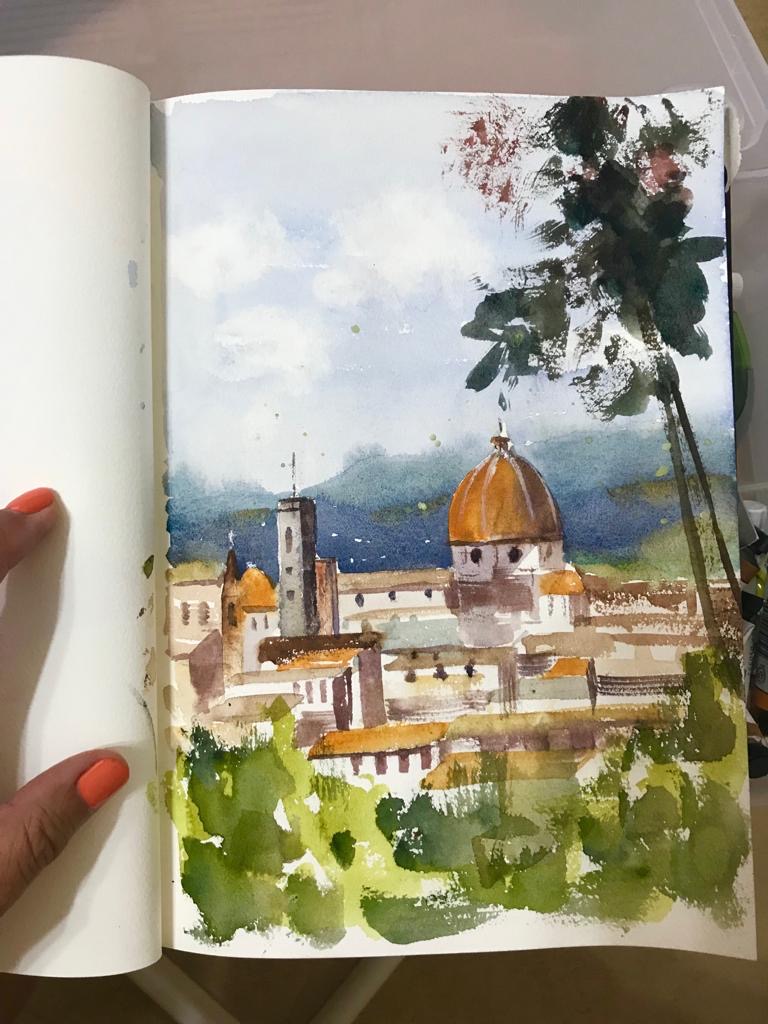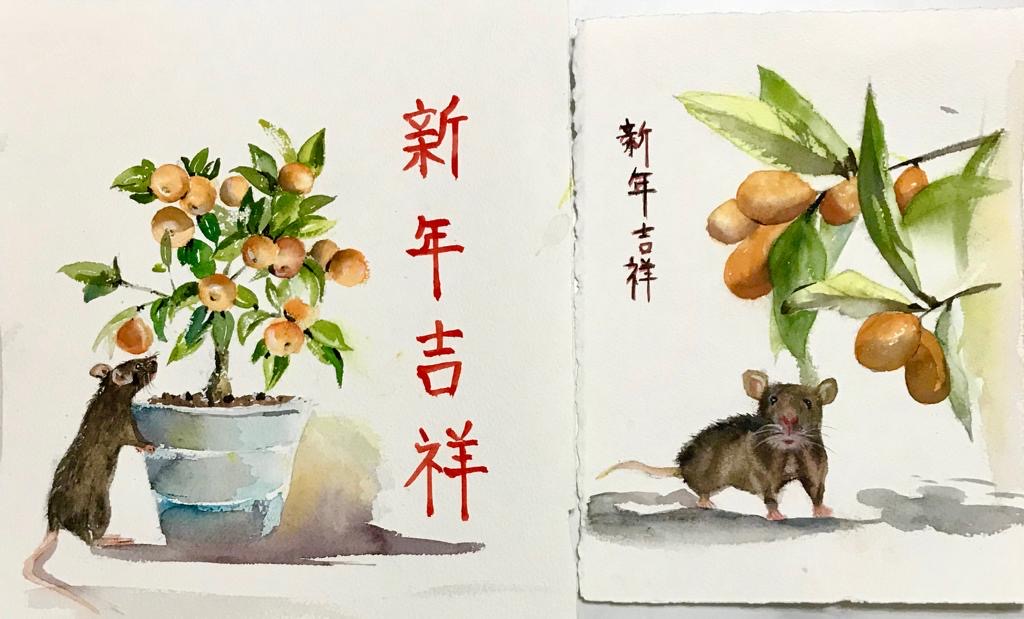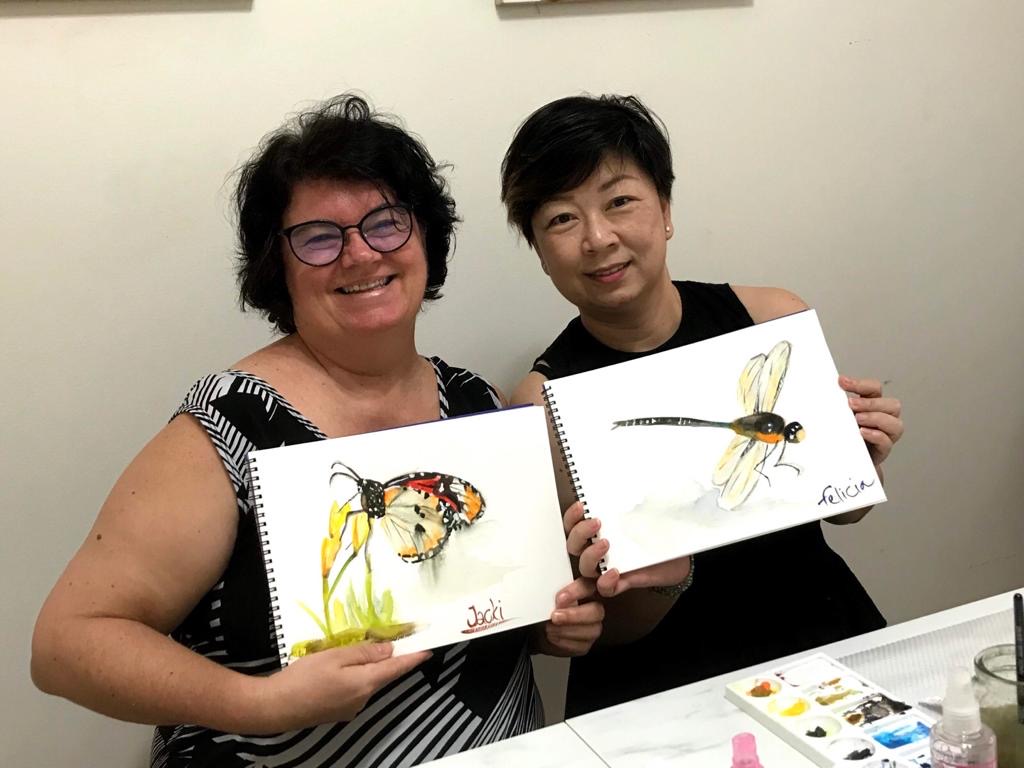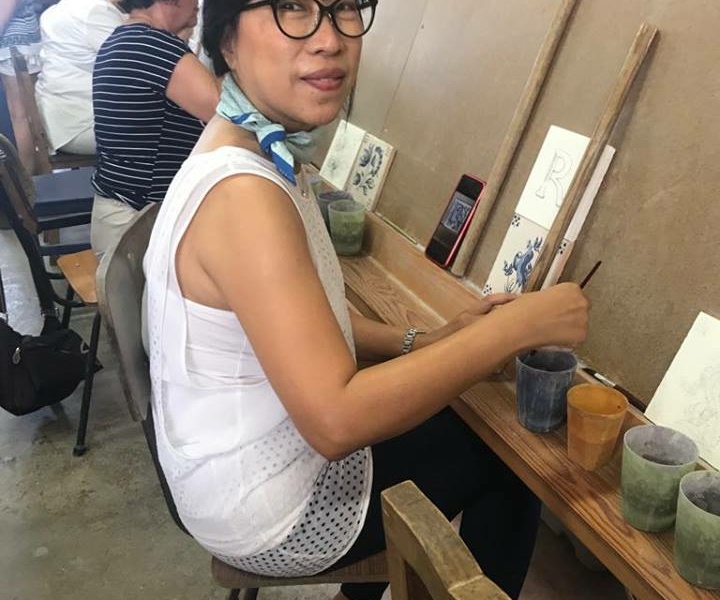- Name
- Rie Rumito
- Expertise/Specialty
- Rie has worked for many years in the banking and financial industry, heading up human resources and organisational development functions. About eight years ago she took up watercolour painting and it changed her life! Her holidays began to centre around painting and, today, much of her spare time is spent painting. These days, she even teaches others. This is what she has to say about watercolour painting...
- When did you first get involved in watercolour painting and what was your pathway?
I started about eight years ago. There was no goal at first, I was just so enamoured by the process of being able to use watercolour, and learning to understand perspective and composition. I felt so fortunate to have stumbled across it - I was absolutely smitten by it. I was working full time, so it was easy for me to attend painting courses around the world for five years, learning from different teachers. When I left corporate life for good, I felt I had enough skills to teach and had something different to offer. So I started teaching a whole bunch of colleagues and friends. I'm still developing myself, but I've found my home. I just let it grow organically now.
- How do you go about it?
I was very organised at work, and I'm organised about painting. I do have targets. My weekends are totally dedicated for painting.
The money that had enslaved me for so long has now been reduced to its proper place. I find painting so anchoring and am so happy when I'm painting, either by myself or with others. I've learned that I'm happy in my own company. It's takes focus and commitment though. I'm willing to make sacrifices, such as changing all my holiday plans - they are now all painting holidays!
- What do you like about painting?
It's very aesthetic and I love the ability to create something pleasing for the eye. I don't feel the need to express all parts of me. I'm not interested in representing social issues - I just want to create something beautiful that is nice to see. It's that simple. When I work on a piece, I lose myself in it. You get to communicate with the subject matter, especially the organic part such a people, animals or birds. You're conveying a mood of sorts, and I can make it cheerful, sad, pensive, curious... I ask myself, if I was there, how would I feel? You're creating stories and connections. That's what I enjoy - there's so much going on in a painting. Telling a story is creative work.
- What challenges have you faced?
Initially I was afraid of painting shadows - how did I know where the sun shines, and what do you do if the sun wasn't even out? And you're painting over the hard work you've already done. I'm relaxed about it now.
My main challenge now is mostly about time. I'm letting things happen. Sometimes I question that - I worry about having to be productive and making a vocation. Sometimes I let it be and other times I ask whether I'm being wise about how I'm spending my time. I'm giving myself permission not to be overly achievement oriented in other parts of my life. Who knows... my choices might funnel down into doing something like therapy and art, where I can combine work and watercolours.
- What have been the personal and health benefits for you?
It's interesting. Things like the material world and shopping used to be important to me, but now only excite me for half a second! I think that's good.
Learning to become a good learner has been beneficial to me. You have to let go.
Having my art and not working full time has been great for my health! It would be extremely hard for me to not work full-time, without the painting. I find it so relaxing and the hours can go by.
It is good for my brain to determine how I'm going to tackle a piece. Good teachers provide a cadence, so that there's some predictability about what to do next. They teach me how to deal with sources of stress in the piece. By anticipating the problem, I can take pre-emptive action.
I also find painting the detail and repetitive nature of it very therapeutic.
Finally, I find painting with others fun and stimulating. There's a human connection.
- What moving, funny or inspirational stories do you have from along the way?
I learnt about the giving aspect of teaching from my main teacher - Zhuhong, a well-known Chinese artist in Singapore. He was volunteering to teach people in wheelchairs to paint. Some of the students even painted by mouth. It seeped into my psyche. Painting gives so much solace to people who are disabled. You initially might think it's so sad, but when you sit with them for weeks and years, you realise how good it is. We're out in public spaces and we're blocking pathways - and I learned that's OK.
- Who do you think would benefit from watercolour painting and how would you advise them to start?
Alot of people - adults, teenagers and children - would benefit from learning watercolour painting! Most people aren't aware of how art can enrich their lives. It's good to let yourself make a mess!
My suggestion is to be open to it. The way I feel about art, when you reach enough quietness, you'll find teachers everywhere. Art is so organic and personal. There's no one school right for you. You can go to proper painting schools, though you might still not gain as much benefit, because painting is a dedication. At first, you can look for demo sessions that are free - just google them online.
I'm very happy to help people get started, and talk about what they need such as brushes, paper, pigments, and possible subject matter to start with.
Art is a channel, a defence mechanism, and a sublimation.



